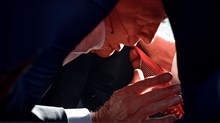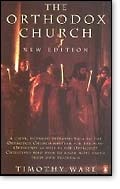 |
The Orthodox Church |
This is a modern classic about the history, doctrine, and sacraments of the Orthodox Church. Its updated version is a carefully nuanced book that is written for the general reader. An Oxford scholar, Ware is likely the most distinguished and knowledgeable living authority on the Orthodox Church.
|
* * * |
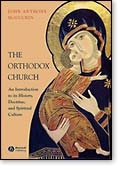 |
The Orthodox Church: An Introduction to Its History, Doctrine, and Spiritual Culture |
This book is designed for the informed layperson or scholar. It is by far the most critically engaged Orthodox response to 21st-century life and thought. It provides a reasoned response to contemporary trends in Catholic and Protestant theology and moral issues, as well as an honest appraisal of the failures of Orthodox Church life today. The author supports the ordination of women to the priesthood and challenges the contemporary Orthodox Church on the basis of its patristic and biblical sources. Whether or not one agrees with all his positions, one simply cannot neglect this tour de force from one of the most competent authorities on the history of Orthodoxy.
|
* * * |
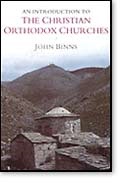 |
An Introduction to the Christian Orthodox Churches |
This is a rare book in that it attempts to familiarize readers with all of the Orthodox Churches, not just those that accepted the Council of Chalcedon.
|
* * * |
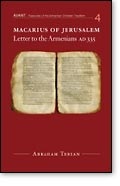 |
Macarius of Jerusalem: Letter to the Armenians, A.D. 335 |
This is the oldest surviving writing pertaining to the Armenian Orthodox Church, and one of a handful of surviving documents that illuminate baptismal and eucharistic practices in the early centuries of the Christian church—practices that are still used today.
|
* * * |
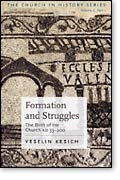 |
Formation and Struggles: The Birth of the Church to A.D. 200 |
This book focuses on the early beginnings of the Orthodox Church in the second century, one of the most pivotal periods in Orthodox history. It is written for the general reader and deals with central issues of Orthodox identity such as the beginnings of Christianity, the formation of the Bible, the rise of bishops, and the position of the Roman church in the second century.
Bradley Nassif, professor of biblical and theological studies at North Park University, Chicago
Copyright © 2009 by the author or Christianity Today/Christian History & Biography magazine.
Click here for reprint information on Christian History & Biography.

Support Our Work
Subscribe to CT for less than $4.25/month
























